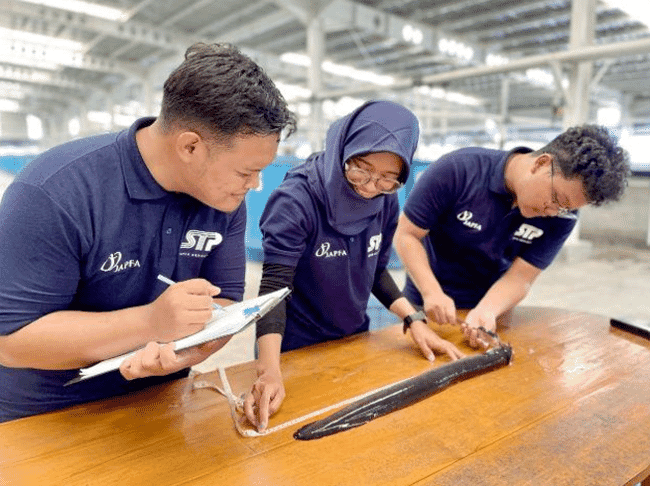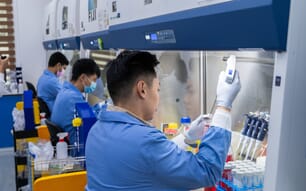
© Japfa Group
The ARC, which was established by PT Suri Tani Pemuka (STP), a member of the Japfa Group, says that the breakthrough has promising implications for both commercial aquaculture and eel conservation efforts.
Tropical eel (Anguilla bicolor) is considered a high-value species due to its exceptional demand in culinary markets across Asia and beyond. It is prized for its rich flavour and high nutritional content.
“This success in the first step of reproducing tropical eel not only represents a historic achievement in aquaculture but also underscores Japfa Group’s commitment to sustainability in food production, paving the way for future innovations in the aquaculture industry,” said the group in a press release.
Until now, tropical eel farming has relied on catching juveniles, known as glass eels, in the wild which are then raised to market size in farms. However, the ARC research team together with Prof Senoo Shigeharu, have successfully hatched 70,000 larvae, achieving larval rearing for 11 days. This demonstrates the potential for large-scale production of tropical eel in aquaculture settings.
“This achievement marks a significant milestone in our efforts to sustainably manage eel populations, as for the first time we successfully hatched tropical eel in a controlled environment,” said Ardi Budiono, president director of STP.
“We believe that the ability to reproduce eel in captivity will have a substantial impact on the aquaculture industry in Asia and globally. To ensure the sustainability of tropical eel populations, STP will continue to implement sustainable eel farming practices, conducting eel research and supporting our efforts to restock eels in their natural habitat, as part of our commitment to sustainable aquaculture.”
“We have seen the opportunity to apply the principles of livestock production to aquaculture and eel farming, with the goal to increase efficiency and reduce dependency on wild-caught glass eels,” said Renaldo Santosa, president director of PT Japfa Comfeed Indonesia and executive director of Japfa Group. “By breeding tropical eels in captivity, we reduce the pressure on wild populations and contribute to biodiversity and ecosystem health. Today’s success is a testament to the power of vision, perseverance and innovation, as well as the importance of collaboration between industry and academia in addressing the challenges of sustainable food production”.



